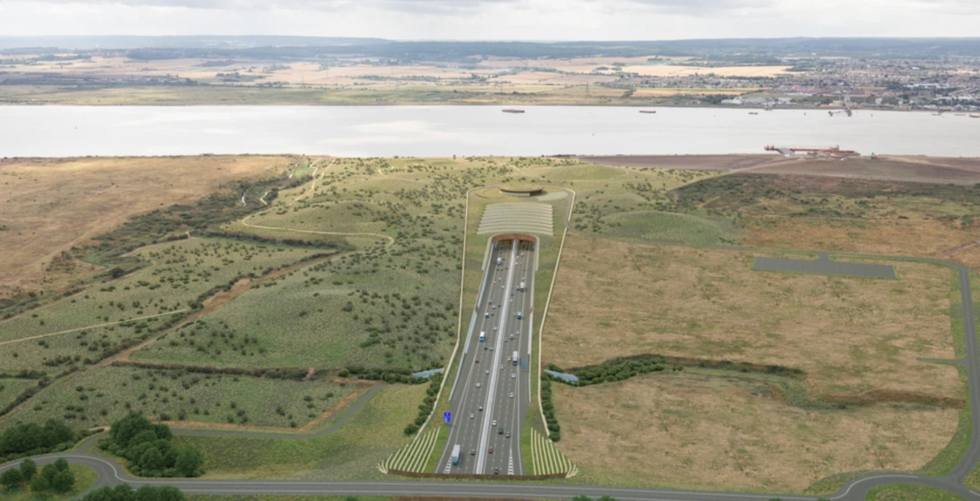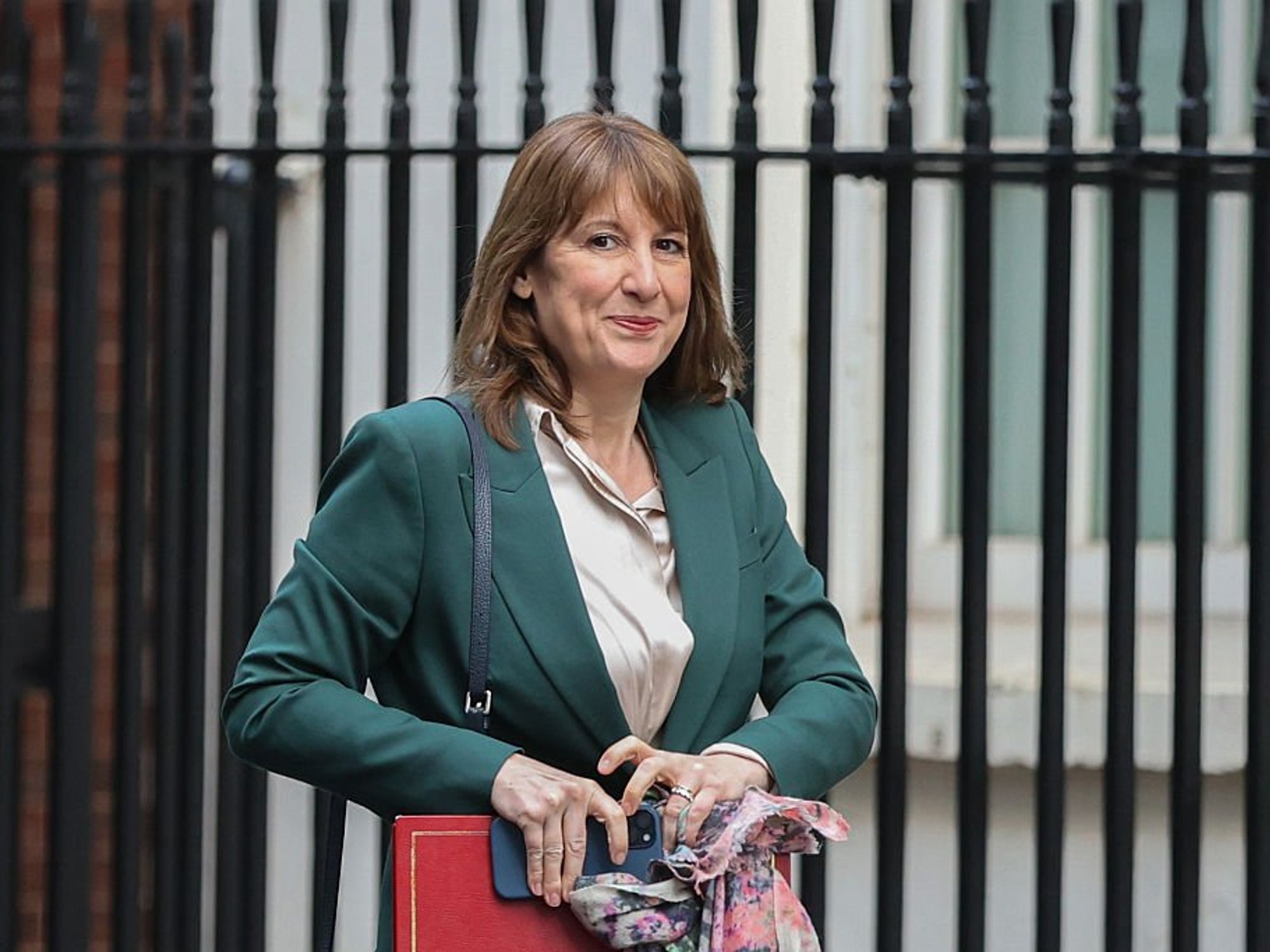New development will 'wreck Essex countryside' and waste BILLIONS, claims Reform MP as deadline looms

National Highways is aiming to start construction in 2026, with the road opening in 2032
Don't Miss
Most Read
A Reform UK MP has claimed a proposed new road will "wreck the Essex countryside" while costing the taxpayer £10 billion without reducing congestion.
The Lower Thames Crossing proposal aims to reduce congestion on the Dartford Crossing.
The new motorway-style road would connect the A2 and M2 in Kent to the A13 and M25 in Essex via a 2.6-mile-long tunnel under the Thames between Tilbury and Gravesend.
National Highways aims to start construction in 2026, with the road opening in 2032, but the project's future faces uncertainty.
A decision on whether to give the proposal the go-head was expected on October 4, but the Government has pushed this back until May next year to buy more time for the application to be considered.

The newly elected MP claims that after 'spending £10 billion on this project, we will be in the exact same boat'
|James McMurdock
The delay follows opposition from some local councils and campaign groups.
Reform MP James McMurdock is among those calling for the project to be scrapped.
The MP for South Basildon and East Thurrock told GB News: "They've [the Government] have spent £800 million to get us to this stage and have not put a single spade in the ground. The planning book that they have written is nearly 400,000 pages long - If that doesn't tell you what an extraordinary mess our planning system is, nothing will."
He claims that, based on current levels of overcrowding and overpopulation, the Dartford Crossing will be back at its present level of congestion within just five years of the road's completion.
"We're about 20 per cent over max capacity at the moment. After spending £10 billion on this project we will be in exactly the same boat - it's the most bizarre, expensive, underwhelming project going."
When approached for comment, a spokesperson for National Highways said: "The Lower Thames Crossing is urgently needed to address congestion problems at the Dartford Crossing and in Essex and Kent, which cause misery for millions of drivers, and cost the UK economy £200 million each year.
"The new crossing will almost double road capacity across the Thames east of London, taking around 20 per cent of traffic away from the Dartford Crossing and will ease congestion in Essex across key section of routes such as the M25 and A13.
"Even after 15 years, traffic at the Dartford Crossing will still be reduced by around 14 per cent. Whilst delays at the Dartford Crossing are more frequent on northbound journeys, congestion affects the entire region and includes individuals returning back to Essex."
A spokesperson for the Department for Transport declined to comment on the live application, referring GB News to the Transport Secretary’s most recent statement published last week.
Thurrock Council in Essex has consistently opposed the project, citing negative economic, social and environmental impacts.
Before she was sworn into office on July 4, new Thurrock MP Labour's Jen Craft posted on X to claim the project would be a "disaster for Thurrock" in terms of the environment, adding: "Even on the best possible estimates will not alleviate the issues caused by congestion on the current Dartford Crossing."
Local campaigners Thames Crossing Action Group also claim the crossing would be “hugely destructive and harmful”, and a waste of money.
Mr McMurdock estimates that the 14-mile road will produce 6.6 million tonnes of CO2, or around two per cent of the UK's total pollution per year for five years during production (he bases this figure on a government report published in March 2020 that provisionally estimated the UK's net carbon emissions in 2019 to be 351.5 million tonnes).
"We are talking extraordinary levels of pollution," the newly-elected MP told GB News.
LATEST MEMBERSHIP DEVELOPMENTS

Thurrock Council has consistently opposed the project, citing negative economic, social and environmental impacts
|National Highways
When GB News put his claim to the National Highways (the Government-owned company responsible for the project), a spokesperson said: "The Lower Thames Crossing has a legally binding limit of 1.44 million tonnes of CO2 over a six-year construction period. This figure was included in the project’s Development Consent Order application, which was subject to a year-long examination by independent experts.
"By the time Lower Thames Crossing opens for traffic, it is expected there will no longer be any areas of concern for air quality (AQMA – Air Quality Management Areas) in that region. Further information can be found on here.
"Only a part of the land being used by the Lower Thames Crossing will be road. Six times more space will be parkland, woodland and new habitats. The project has reduced its impact on Ancient Woodland by around 70 per cent."
Not everyone is down on the scheme.
A coalition of 73 organisations urged the government last month to commit to the £9 billion Lower Thames Crossing project, warning of potential economic consequences if a decision is delayed.
In a letter coordinated by trade body Logistics UK, the group emphasised the national importance of the road scheme as as deadline approaches.
The signatories, including major contractors and construction trade bodies, stressed the need for a timely decision to avoid "another 15 years of uncertainty and congestion-related challenges".
The letter to the government states: "The Lower Thames Crossing is not just a local project but a national imperative that will bolster our economic resilience and growth. A decision by 4th October is crucial. The logistics industry and the wider UK business community cannot afford to endure another 15 years of uncertainty and congestion-related challenges."
The leader of Kent’s Dartford Borough Council, Jeremy Kite, is also backing the scheme, claiming it would ease district congestion.
Mr McMurdock is not convinced.
"This is not about NIMBYism. It's the bare bones in terms of beauty, pride and scope. I am obligated to protect the taxpayer from waste."










